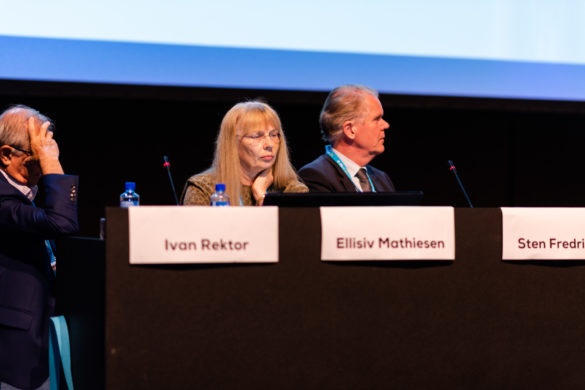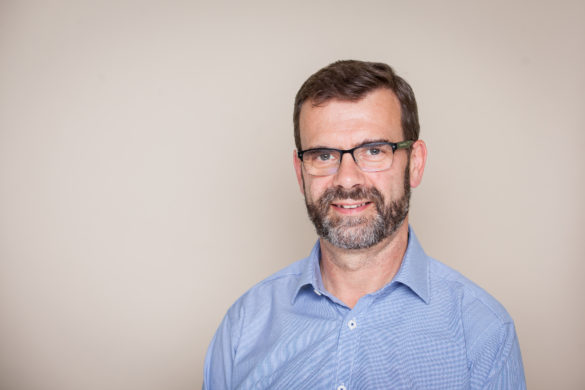Today’s joint session with the European Sleep Research Society (ESRS) on The Burden of Sleep Disorders in Neurology was one of a number of sessions dedicated to sleep specialists as part of the Sub-specialty Track on Sleep-Wake Disorders Day on Saturday, 25 June at EAN 2022. The Symposium consisted of two hours filled with information on various aspects of sleep disorders, co-chaired by Profs. Ulf Kallweit and Evelina Paedijene.
Missed this session?
Watch on demand via our Virtual Congress Platform – click here!
The first topic was Sleep and Brain Health, presented by sleep specialist and EAN President, Prof. Claudio Bassetti. During his talk, Bassetti highlighted that most known and used definitions of general health all have one thing in common – the absence of disease and disability. He pointed out that it is necessary to also focus on prevention and general well-being and that any definition should go beyond absence of disease, as stated by the World Health Organisation (WHO) in 1948. Focusing on health is essential in this approach, as emphasised by the recently published EAN Brain Health Strategy. Bassetti also introduced a study from China, which shows increased mortality caused by insomnia or losing sleep three times a week. He pointed out that neurologists need an overall grasp of all disorders, not just one and concluded that this study also underlines the importance of sleep and its correlation to good brain health. He suggested to include sleep and brain health in the definition of general health and that good sleep and well-being should be promoted alongside optimal brain health throughout the course of life. He noted that a lot of data is missing to convey this approach. His talk was followed by a short discussion on the presented topics.
Prof. Pierre-Hervé Luppi, President of ESRS, gave an overview of findings on the sleep circuits and basic mechanisms and the neuroanatomy of sleep and wake, and the regulation and function of the brain in his lecture, Sleep by and for the brain. Luppi, a renowned sleep/wake researcher also pointed out gaps in literature and findings on topics of sleep and stated that proving different links between the variety of topics is the only way to develop the field more.
The next lecture, on Epidemiology of Sleep Disorders in Neurology, was presented by Prof. Elisa Baldin. Epidemiology is still broad, and it is important to take into account that prevalence depends on definitions. Baldin explained this hypothesis using the example of insomnia. At present, there are also methodological issues, which are as follows: data is mostly based on self-reported questionnaires or surveys which have variable response rates. Possible use of instruments is either not validated or with unknown sensitivity and specificity (non-standardised use of questionnaires). Definitions also vary and timeframe is an issue as well. Her presentation pointed out these gaps in findings and recommended the use of descriptive epidemiology by selecting the appropriate population, with very specific restrictions, to identify the setting for data collection (such as general practitioners or hospitals).
The final speaker, Prof. Richard Dodel, presented a study named Economic Burden of Sleep-Wake Disorders: Assessing the Economic Burden of Neurological Diseases in Europe. The project is supported by EAN & the Lundbeck International Foundation. During his lecture, Dodel gave a brief overview of past studies, including the Global burden of disease study (from 1992; founded by Harvard) and Cost of Brain Disorders in Europe (from 2010 by Healthcare Costs of neurological and psychiatric disorders). There is a need for new data as the cost of disorders in Europe is about €32 billion per year. Dodel’s presentation pointed out the lack of information and how the ‘popularity’ of certain diseases prevents others from receiving equal amounts of research attention. The study will be finished in November 2022.











